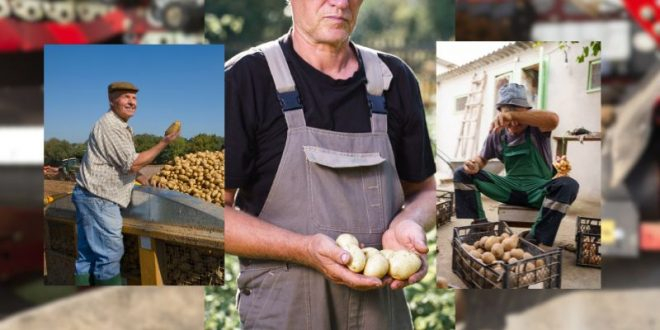#PotatoCrisis #ItalianAgriculture #Coldiretti #AgriculturalInnovation #ClimateChangeImpact #PhytosanitaryMeasures #SustainableFarming
Italy, renowned for its rich agricultural heritage, is currently grappling with a potato crisis of unprecedented proportions. Coldiretti, the authoritative voice in Italian agriculture, recently unveiled alarming statistics: a 26% surge in retail potato prices compared to the previous year, with one in four potatoes lost due to production failures. This crisis, impacting farmers, agronomists, agricultural engineers, farm owners, and scientists alike, demands urgent attention and innovative solutions.
The Root Causes
The collapse in Italian potato production has multifaceted origins. First and foremost, the onslaught of wireworm attacks, a notorious pest for potatoes, devastated national crops. Furthermore, climatic instability and devastating storms exacerbated the situation, especially evident in the flood-stricken region of Romagna. With 47,000 hectares of cultivated land at risk and annual production plummeting to 1.3 million tonnes, urgent measures are imperative.
Consumer Impact and Economic Strain
As a consequence, retail potato prices have skyrocketed, creating significant economic challenges for consumers. Retail prices now range between EUR 1.10 and EUR 2.30 per kilo, significantly higher than the average agricultural production price of EUR 0.54 per kilo. This disparity has led to financial strain for consumers, affecting their daily lives and dietary choices.
Import Surges and International Ramifications
To cope with the domestic production collapse, Italy resorted to a 27% increase in potato imports, surpassing 500 million kilos in the first half of the year. This surge raises concerns about the quality of imported potatoes and the impact on local markets. Moreover, there’s a risk of importing products from non-EU nations that deploy chemicals banned in Europe, thereby compromising public health and safety standards.
Possible Solutions and the Way Forward
In response to this crisis, Coldiretti advocates for the implementation of more effective phytosanitary principles to combat pests like wireworms. Additionally, strategic investments and planning are vital to safeguarding national production from climatic adversities. Moreover, fostering sustainable agricultural practices and encouraging innovation in farming techniques could enhance resilience and mitigate future risks.
The collapse in Italy’s potato production, leading to soaring prices and economic strain, calls for urgent action and collaborative efforts from farmers, agronomists, agricultural engineers, farm owners, and scientists. By investing in sustainable practices, embracing innovative solutions, and implementing stringent phytosanitary measures, Italy can navigate this crisis and fortify its agricultural landscape.







